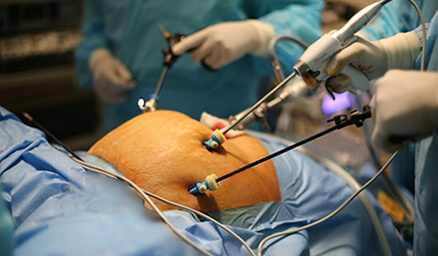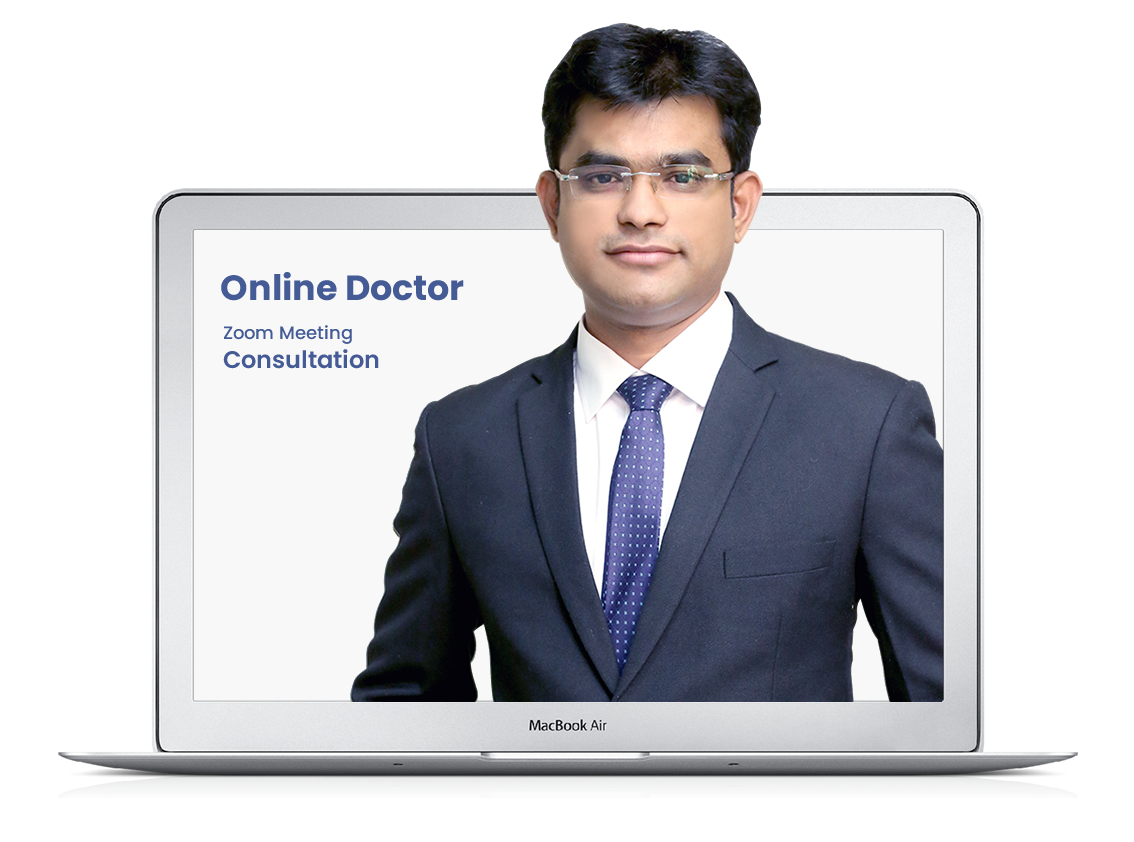

Understanding Endometriosis and PCOS
“Endometriosis may be tough, but in the hands of an experienced surgeon, it doesn’t stand a chance!”
Are you tired of dealing with painful periods, irregular cycles, and other worsening reproductive health symptoms? You could be one of many women suffering from endometriosis or PCOS, two common conditions that can disrupt your daily life.
Endometriosis and PCOS are distinct conditions, but they can share symptoms and have an impact on fertility. We will explain the entire concept of endometriosis and PCOS in this write up.
Understanding Endometriosis:
Endometriosis is a medical condition affecting women’s reproductive organs. Normally, the uterine lining (called the endometrium) thickens each month in preparation for a possible pregnancy. If there is no pregnancy, the endometrium degrades and is shed during menstruation.
Endometriosis causes tissue similar to the endometrium to grow outside the uterus, such as on the ovaries, fallopian tubes, or other pelvic organs. This tissue responds to hormones in the same way that the endometrium inside the uterus does, which means it thickens and sheds every month. However, because this tissue is outside the uterus, it cannot leave the body during menstruation. This can result in inflammation, pain, and the formation of cysts.
If you are experiencing any symptom of endometriosis, meet the best laparoscopic surgeon in Ahmedabad, Dr Sandip Sonara, for proper endometriosis diagnosis and treatment.
Understanding PCOS:
PCOS is a hormonal disorder that primarily affects women of reproductive age. It is caused by a hormonal imbalance, which leads to cyst formation in the ovaries.
PCOS symptoms vary from person to person, but they frequently include irregular periods, acne, weight gain, and excessive hair growth on the face, chest, and back. Although the precise cause of PCOS is unknown, it is thought to be related to insulin resistance, which affects the body’s ability to process glucose. This raises insulin levels, which affects the ovaries and causes them to produce more androgens (male hormones) than usual.
PCOS can also cause infertility because hormonal imbalances prevent ovulation. Medication and lifestyle changes, on the other hand, can help manage symptoms and improve fertility.
What distinguishes PCOS symptoms from those of endometriosis?
Both PCOS and endometriosis are common hormonal disorders that can have an impact on women’s reproductive health. While they both have some symptoms in common, the underlying causes and specific symptoms of each condition are distinct.
Polycystic Ovary Syndrome (PCOS) is a hormonal disorder caused by a hormonal imbalance in the ovaries. Among the symptoms of PCOS are:
- Irregular menstrual cycles or no menses.
- Unusual hair growth on the face, chest, and back
- Weight gain and difficulty losing weight
- Acne and oily skin
- Polycystic ovaries (small cysts on the ovaries)
Endometriosis, on the other hand, is a condition in which the tissue that normally lines the inside of the uterus (endometrium) grows outside the uterus, causing inflammation and pain. Endometriosis symptoms can include:
- Painful menstrual periods
- Chronic pelvic pain
- Pain during sex
- Heavy menstrual bleeding
- Infertility
While both conditions can result in infertility, the causes and treatment options differ. PCOS is typically treated with lifestyle changes and hormone-regulating medications, whereas endometriosis is typically treated with pain relievers or surgery to remove the excess tissue.
Can both conditions exist at the same time?
According to research, women can have both endometriosis and PCOS, despite the fact that these are two separate conditions with different causes. According to several studies, women with PCOS may also have undiagnosed endometriosis. This is most likely due to the fact that PCOS can result in inflammation, high levels of androgens, and insulin, all of which increase the risk of developing endometriosis. Women with PCOS are also more likely to have other gynaecological conditions, including endometriosis, according to research.
How are they diagnosed?
Diagnosing endometriosis and PCOS involves different approaches,
Endometriosis can only be diagnosed definitively by laparoscopically removing a lesion and sending it to a pathology laboratory for microscopic examination. This is due to the fact that the physical appearance of endometriosis lesions on imaging studies like ultrasound, MRI, or CT scan may not be specific enough to differentiate them from other conditions. Consult the best laparoscopic surgeon in Ahmedabad for this diagnosis. Laparoscopy allows for direct pelvic visualisation as well as biopsy or removal of suspected endometriosis lesions for histological analysis, which is the gold standard for diagnosis.
While imaging studies and blood tests can aid in the diagnosis of PCOS, there is no single test that can definitively determine the condition. A healthcare provider will typically make a diagnosis based on the presence of two out of three of the following criteria: irregular periods, signs of excess androgen such as acne or excessive hair growth, and the presence of cysts on ultrasound of the ovaries. Other conditions with similar symptoms, such as thyroid and adrenal gland disorders, must also be ruled out.
Is the treatment for endometriosis and PCOS different?
Yes, the treatment for endometriosis and PCOS is different because they have different underlying causes and symptoms. Endometriosis is the growth of the endometrial tissue outside the uterus, whereas PCOS is a hormonal disorder caused by an imbalance in reproductive hormones. Here are the different treatment options for both conditions:
Endometriosis:
- Pain relief medication such as non-steroidal anti-inflammatory drugs (NSAIDs) or opioids
- Hormonal therapy to reduce estrogen levels and suppress the growth of the endometrial tissue
- Laparoscopic Surgery to remove the excess tissue
- LAPEX (Laparoscopic Excision Surgery).
Polycystic Ovary Syndrome (PCOS):
- Lifestyle changes, including weight loss, exercise, and a healthy diet
- Medications to regulate hormones, such as birth control pills, metformin, and anti-androgen medications
- Fertility treatments, including ovulation induction and in vitro fertilization (IVF)
In both cases, the treatment plan is tailored to the individual’s symptoms and medical history. If you are experiencing symptoms of either condition, it is important to consult with a laparoscopic surgeon in Ahmedabad for proper diagnosis and treatment.
Recent Posts
-

Know about Endometriosis and Quality of Eggs for Getting Pregnant
April 28, 2023
-

Complete Guidance on Endometriosis and Miscarriage
April 28, 2023
-

Get Best Tips for the Management of PCOS by Best Gynaecologist in Ahmedabad
April 28, 2023
-

The Hidden Battle: Understanding the Fertility Implications of Silent Endometriosis
February 28, 2023
-

Understanding Endometriosis and PCOS
February 20, 2023
-

The Shortcomings of Imaging Tests in Detecting Endometriosis
February 13, 2023









